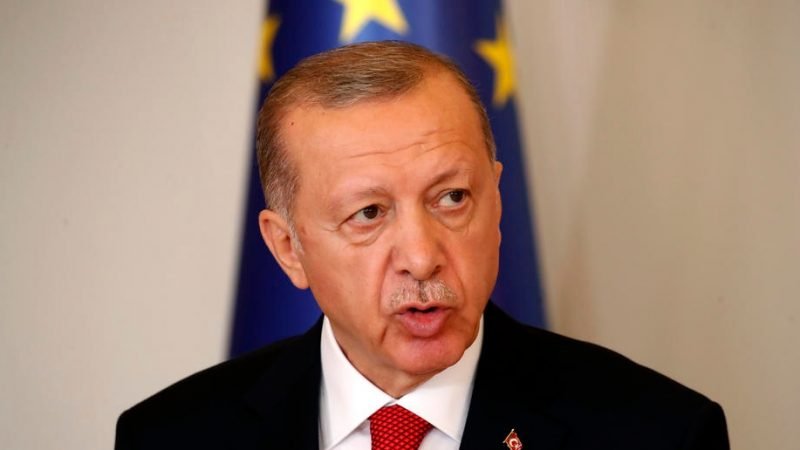President Tayyip Erdogan won the first round of voting in Turkey election over opposition candidate Kemal Kilicdaroglu, but fell short of a clear majority needed to continue ruling the NATO member state for another 20 years.
In an election considered a verdict on the increasingly authoritarian approach of Erdogan, neither Erdogan nor Kilicdaroglu received the required 50% of the vote to avoid a second round, which will take place on May 28.
Turkey’s presidential election will determine not only who will be in charge, but also whether the country returns to a more secular, democratic course, how it will address its terrible cost of living crisis, and how it will handle important connections with Russia, the Middle East, and the West.
Kilicdaroglu asked his followers to be patient and accused Erdogan’s party of tampering with the counting and reporting of results. Kilicdaroglu predicted he would win the runoff.
But Erdogan performed better than pre-election polls had predicted, and he appeared in a confident and combative mood as he addressed his supporters.
“We are already ahead of our closest rival by 2.6 million votes. We expect this figure to increase with official results,” Erdogan said.
With almost 97% of ballot boxes counted, Erdogan led with 49.39% of votes and Kilicdaroglu had 44.92%, according to state-owned news agency Anadolu. Turkey’s High Election Board gave Erdogan 49.49% with 91.93% of ballot boxes counted.
Thousands of Erdogan voters converged on the party’s headquarters in Ankara, blasting party songs from loudspeakers and waving flags. Some danced in the street.
“We know it is not exactly a celebration yet but we hope we will soon celebrate his victory. Erdogan is the best leader we had for this country and we love him,” said Yalcin Yildrim, 39, who owns a textile factory.
The outcome revealed extreme polarisation in a nation at a turning point in its political history. The outcome of the poll was expected to give Erdogan’s ruling coalition a majority in the legislature and provide him a possible advantage going into the runoff.
Kilicdaroglu, who is the leader of a six-party alliance, had a minor advantage according to polls conducted prior to the election, which predicted a very close contest. On Friday, he was above the 50% mark in two polls.
Two weeks of uncertainty could roil markets for the 85 million-person nation, which is already dealing with skyrocketing inflation. Analysts predict gyrations in the local currency and stock market.
“The next two weeks will probably be the longest two weeks in Turkey’s history and a lot will happen. I would expect a significant crash in the Istanbul stock exchange and lots of fluctuations in the currency,” said Hakan Akbas, managing director of Strategic Advisory Services, a consultancy.
“Erdogan will have an advantage in a second vote after his alliance did far better than the opposition’s alliance,” he added.
A third nationalist presidential candidate, Sinan Ogan, stood at 5.3% of the vote. He could be a “kingmaker” in the runoff depending on which candidate he endorses, analysts said.
The opposition said Erdogan’s party was delaying full results from emerging by lodging objections, while authorities were publishing results in an order that artificially boosted Erdogan’s tally.
Kilicdaroglu, in an earlier appearance, said that Erdogan’s party was “destroying the will of Turkey” by objecting to the counts of more than 1,000 ballot boxes. “You cannot prevent what will happen with objections. We will never let this become a fait accompli,” he said.
But the mood at the opposition party’s headquarters, where Kilicdaroglu expected victory, was subdued as the votes were counted. His supporters waved flags of Turkey’s founder Mustafa Kemal Ataturk and beat drums.
One of the most important political choices in Turkey’s 100-year history, the choice of the country’s next president will have an impact far beyond Turkey’s borders.
An Erdogan victory would undoubtedly rejoice the Kremlin but unnerve the Biden administration as well as several European and Middle Eastern governments who had strained ties with Erdogan. Erdogan is one of President Vladimir Putin’s most important partners.
The NATO member and second-largest nation in Europe, Turkey, has been transformed into a global player under the leadership of its longest-serving leader, who has also established an arms industry that is in demand by other nations.
Parliamentary majority
Kilicdaroglu has vowed to reestablish the country’s shaky ties with the West, restore democracy after years of state persecution, revert to conventional economic principles, and empower institutions that lost their independence under Erdogan.
If the opposition wins, thousands of political prisoners and activists might be set free.
If Erdogan is elected to another term, critics worry that his autocratic rule will only get worse. The president, who has won twelve elections, is 69 years old and claims to appreciate democracy.
The People’s Alliance comprising Erdogan’s AKP, which has Islamist roots, the nationalist MHP, and other parties performed better than anticipated and was on track to win a majority in parliament.
Also read: Was Turkey Erdogan poisoned for siding with Putin’s Russia?
